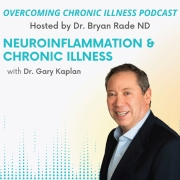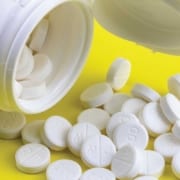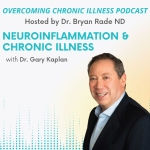Health Benefits of Vitamin D
Though there is an abundance of research on the health benefits of Vitamin D, some estimate that up to 50% of certain populations in the US may have lower than advisable levels in the body. Furthermore, there is no consensus on the definition of what constitutes a deficiency, making analysis of the scale of the problem more difficult.
Mechanisms of Vitamin D
Vitamin D receptors are present in nearly every tissue and cell in the body, making it essential in maintaining many of the body’s physiological functions. At a minimum, it maintains bone health by helping the body to absorb calcium, keeping bones healthy and strong. A deficiency over a prolonged period of time can lead to a loss in bone density and a higher likelihood of fractures and falls as a person ages.
We also know that adequate Vitamin D levels can lower the risk of developing heart disease. Research shows an inverse relationship between Vitamin D and C Reactive Protein (CRP), which is a marker associated with heart disease (the higher the CRP levels, the higher the risk of heart disease). Higher CRP levels are also indicative of other inflammatory illnesses in the body.
Vitamin D is essential for the normal and healthy functioning of the immune system. When adequate levels are not maintained, the microglia – the immune cells of the Central Nervous System that initiate temporary inflammatory responses to attack foreign invading organisms – are unable to function optimally. Subsequently, people with low levels of Vitamin D are at higher risk of developing a host of inflammatory conditions such as Arthritis, Multiple Sclerosis, Diabetes, migraines, Depression, Fibromyalgia, and various forms of cancer.
Vitamin D Intake
Vitamin D can be obtained in the following ways:
- Exposure to sunlight. Vitamin D3 is produced when bare skin is exposed to UV rays. Factors such as sunscreen use and geographic location can affect a person’s Vitamin D level. Experts say that approximately 5-10 minutes per day without sunscreen, 2-3 times a week,
- Food. While there are not too many foods that naturally contain Vitamin D, good sources include fatty fish such as tuna, salmon, sardines, and mackerel. It can also be found in eggs (specifically the yolks) and in liver.
- Nutritional supplements. Taking a daily supplement is an easy and effective way to maintain adequate levels in the body. However, because Vitamin D is fat-soluble, it is harder for your body to eliminate it if levels get too high. Therefore, make sure to talk to your physician about the dosage that’s best for you. Make sure also to only use supplements from a reliable manufacturer given that supplements are not FDA regulated.
How much is enough?
Vitamin D is a fat-soluble vitamin, which means that it is stored by the body in fat tissue and remains on reserve for future use. This also means, of course, that it is possible to reach toxic levels if too much is taken.
The Institutes of Medicine (IOM) recommends supplementation of up to 600 IUs per day, and up to 800 IUs per day for those over 70 years old. The IOM also suggests, however, that a person may need a much larger dose depending on his/ her state of health.
These are general recommendations – the only way to determine appropriate dosage is by having serum levels measured by asking your doctor to order a “Vit. D 25-OH-D” test (also called Vit. D 25, Hydroxy). This is the best test to accurately determine if you have adequate levels of Vitamin D in your body.
Serum levels are considered normal in the 30-100ng/ml range, but when the goal is optimal health, maintaining a level of 50-70ng/ml is ideal.
We are here for you, and we want to help.
Our goal is to return you to optimal health as soon as possible. To schedule an appointment please call: 703-532-4892 x2









Leave a Reply
Want to join the discussion?Feel free to contribute!